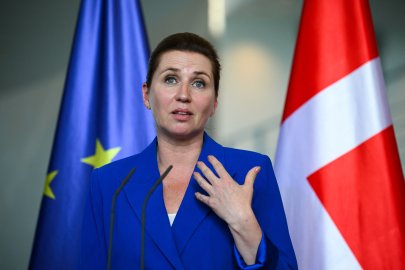Denmark’s EU Presidency Prioritizes Migration Reform Initiatives
Denmark’s recent presidency of the European Union has brought migration reform to the forefront of discussions among member states. As global immigration challenges continue to evolve, the importance of developing a cohesive strategy becomes increasingly vital. This blog explores the implications of Denmark’s presidency on migration reform and offers insights into how these initiatives may shape the future of immigration policy within the EU.
The Current State of Migration in the EU
Migration has become a significant topic of debate in the EU, especially in light of recent events affecting migration patterns. The ongoing conflict in various regions, economic instability, and climate change have resulted in an upsurge in the number of individuals seeking refuge within EU borders. This necessitates a reevaluation of existing policies and the development of new frameworks to adequately address the complexities involved.
Key challenges faced by the EU regarding migration include:
Denmark’s Approach to Migration Reform
During its presidency, Denmark aims to spearhead discussions surrounding more humane and effective migration policies. This includes a focus on enhancing cooperation between member states and addressing the root causes of migration. One significant aspect of Denmark’s approach is the emphasis on multilateral agreements that facilitate shared responsibility among EU nations.
Denmark’s initiatives align with the broader goals outlined in the EU’s New Pact on Migration and Asylum, which seeks to create a fair and efficient migration system. This pact emphasizes the importance of solidarity among member states while ensuring the protection of human rights for all migrants.
Proposed Initiatives Under Denmark’s Presidency
As part of its leadership role, Denmark is expected to propose several initiatives aimed at reforming migration policy. Key proposals may include:
1. Strengthening Border Security: Denmark advocates for enhanced border management to prevent irregular migration while ensuring that humanitarian needs are met. This involves utilizing technologies such as the green security login system to streamline processes at entry points.
2. Expanding Legal Pathways: By creating more opportunities for legal migration, Denmark aims to reduce the pressure on asylum systems. This may involve expanding programs such as the humanitarian parole initiative to allow vulnerable individuals to enter the EU safely.
3. Enhancing Support for Asylum Seekers: Denmark seeks to improve the reception conditions for asylum seekers, ensuring that their rights are protected while their claims are processed. This aligns with the need for better resources and support systems across member states.
4. Promoting Integration Policies: Effective integration of migrants into host societies is crucial for fostering social cohesion. Denmark’s presidency will likely emphasize the importance of tailored integration programs that address the specific needs of different migrant groups.
Impact on Immigration News and Policy
The outcomes of Denmark’s presidency are expected to influence immigration news and policy across the EU significantly. With a focus on reform, the initiatives proposed may lead to changes in how member states approach their immigration systems. For instance, countries like Portugal and Spain may adopt similar strategies in response to the proposed reforms, impacting immigration trends in regions such as San Bernardino immigration and California immigration news.
Moreover, Denmark’s leadership could inspire a shift in public perception regarding migration. Ongoing discussions and initiatives may help combat negative stereotypes and promote a more balanced view of the benefits that immigration brings to society.
The Role of NGOs and Advocacy Groups
Non-governmental organizations (NGOs) and advocacy groups play a crucial role in shaping migration reform discussions. Their involvement ensures that the voices of migrants and refugees are considered in policy-making processes. As Denmark’s presidency progresses, these organizations are expected to continue their advocacy efforts, pushing for reforms that prioritize human rights and dignity.
In particular, groups focusing on humanitarian parole news and immigrant registration will likely remain active in promoting policies that align with Denmark’s vision for migration reform.
Conclusion
Denmark’s EU presidency represents a critical moment for migration reform within Europe. By prioritizing cooperative approaches and humane policies, Denmark aims to pave the way for a more efficient and compassionate migration system. As member states engage in discussions, the outcomes of this presidency may shape the future of immigration policy, addressing both current challenges and long-term solutions.
As we look ahead, it is essential to stay informed about developments in immigration news, as these initiatives can have far-reaching implications for individuals seeking a new life in Europe. The collective efforts of member states, advocacy groups, and the international community will ultimately determine the success of these migration reform initiatives.










